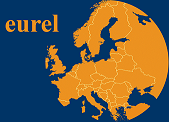I will begin by outlining and arguing for my preferred understanding of ‘non-religion' as a form of religion-related discourse. Drawing upon extensive fieldwork in Edinburgh, and developing comparative work between Northern Ireland and Scotland, I will make three key points. First, the local and national particularity of a religion-related discursive field serves as more than a mere context or backdrop but actively participates in its construction, and thus in the positioning of phenomena and social actors as ‘religious' or ‘non-religious'. Second, in many cases the ‘non-religious' is implicit in the subject position of those actors utilizing religion-related discourse, and thus we should avoid taking naïve discourses on the insubstantial nature of ‘secularity', ‘non-religion' etc. at face value. Third, religion-related categories frequently serve as ‘power categories', meaning that being positioned as ‘religious' or ‘non-religious' means more in certain circumstances than it does in others.
Using empirical examples, I will emphasize that ‘religion' exerts enormous power in certain contexts in contemporary society, and that therefore certain positions are placed into conversation with religion, and might contextually considered to be ‘non-religious'. This approach avoids reifying ‘religion' as in some way unique, whilst also fully incorporating religion-related subject positions—including the ‘non-religious'—into the academic study of religion. It is my hope that such work can act as a bridge between two increasingly entrenched positions in the contemporary study of religion-related phenomena—one that is interested in understanding ‘religion in the real world', and the other in understanding the discursive processes by which that statement makes sense.

 PDF version
PDF version
